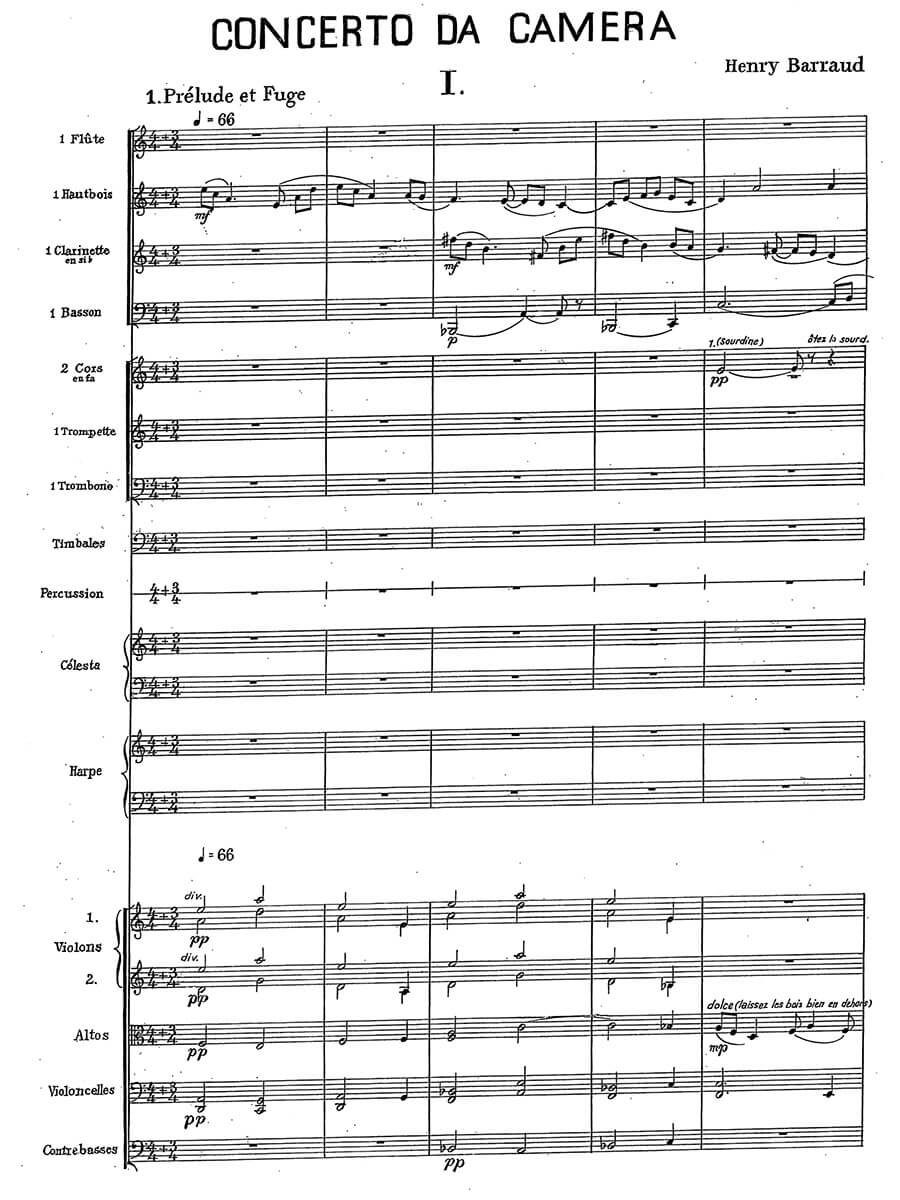Concerto da Camera (1934)
Barraud, Henry
27,00 €
Preface
Henry Barraud – Concerto da Camera (1934)
(b. Bordeaux, 23. April 1900 – d. Saint-Maurice, 28. December 1997)
Preface
“The essential quality of music is that it should move the listener; yet the composer must always seek to compromise between sensibility and intelligence”, was Henry Barraud’s signature phrase.1 This statement mirrored Barraud’s musical approach to all of his work. As a result, he was often criticized to be a purely intellectual composer, a judgment, which does not do justice to his diverse output, which encompasses symphonies, operas, cantatas, and chamber works, aside from several literary works.2
Born in France to wine merchants, Henry Barraud lived for 97 years (April 23rd, 1900 – December 28th, 1997), and experienced many key moments in world history.3 Being privileged to have a quality education, he was studying counterpoint and harmony in Bordeaux at the age of 16, which is when he first began to compose.4 His parents intended for Barraud to take over the family business, initiating his move to London, where he studied elements of the wine trade.5 Barraud decided, however, that he had no interest in the family business or the wine trade and again transferred schools, becoming a member of the Paris Conservatoire, at the age of 26 to study composition, the art of the fugue, and orchestration. However, his studies were cut short as he was expelled due to having written a string quartet (now lost) that was deemed “outrageously innovatory”.6 This did not prevent him from composing more. He went on to compose his piece Poeme (1932, first performed 1934) for large orchestra and he established the Triton concert series for new music in 1933.7
During World War II, Barraud became involved in Resistance Broadcasting in occupied France, and used music on his broadcast to raise morale. After the war he chose to continue his radio programming and broadcasting work by becoming the head of “Radiodiffusion Francaise” and of “Programme National”.8 In music broadcasting, Barraud welcomed all types of music, particularly new music, and helped raise the standards and expectations of French orchestral and choral music. …
Full preface / Komplettes Vorwort > HERE
Score Data
| Genre | Orchestra |
|---|---|
| Size | 210 x 297 mm |
| Printing | Reprint |
| Pages | 88 |
